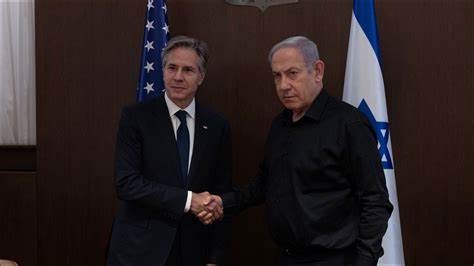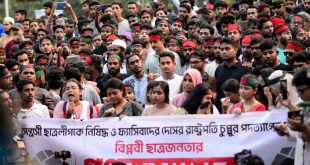 UNSC Resolution for Ceasefire in Gaza: Navigating the Complex Landscape of International Relations
UNSC Resolution for Ceasefire in Gaza: Navigating the Complex Landscape of International Relations
In a significant development, the United Nations Security Council (UNSC) faced a critical decision regarding an immediate ceasefire in the ongoing conflict between Israel and the Palestinian militant group, Hamas, in Gaza. This resolution, proposed by the United Arab Emirates (UAE), sought to bring an end to the hostilities and pave the way for humanitarian relief. However, the United States opposed the resolution, citing concerns about its efficacy and potential repercussions.
The UAE Proposal: A Call for Ceasefire
The UNSC convened to deliberate on the proposal put forth by the UAE, backed by thirteen member states. The resolution aimed not only at an immediate humanitarian ceasefire but also called for the unconditional release of all prisoners and uninterrupted humanitarian aid supply.
US-Israel Stance: A Resistance to Ceasefire
The United States, aligned with Israel, voiced strong opposition to the proposed ceasefire. Washington argued that such a resolution could only serve to benefit Hamas, emphasizing the need for a more robust and lasting peace agreement. The U.S. maintained its support for a temporary halt in hostilities to secure the release of hostages held by Hamas since their deadly attack on Israel on October 7.
The Temporary Ceasefire: A Glimpse of Hope
Israel and Hamas had previously agreed to a seven-day temporary ceasefire, during which Hamas released some prisoners, and Gaza witnessed an increase in humanitarian aid. The ceasefire, which began on November 15, offered a brief respite from the conflict but concluded on December 1.
American Concerns: Balancing Security and Peace
The U.S. stance against the proposed resolution stemmed from its belief that a ceasefire might only serve the short-term interests of Hamas. Instead, Washington advocated for a more comprehensive approach, ensuring the security of its citizens while supporting a temporary halt in hostilities to negotiate the release of hostages.
UK’s Absence and International Responses
The absence of the United Kingdom during the voting process raised eyebrows. British Ambassador Barbara Woodward explained that their non-participation was due to the lack of condemnation for Hamas in the resolution. She stressed the importance of Israel’s capability to deal with threats posed by Hamas while adhering to international humanitarian law.
UN Chief’s Rare Intervention
UN Secretary-General Antonio Guterres, in an unusual move, warned the UNSC about the global threat posed by the ongoing conflict. Referring to Article 99 of the UN Charter, Guterres sought to draw attention to a situation that he believed could jeopardize international peace and security.
Guterres’ Letter and the Unprecedented Step
In a letter to the Security Council, Guterres invoked Article 99, a seldom-used provision. The letter underscored the Secretary-General’s desire to bring forth a case that, in his view, could put international peace and security at risk. This marked a rare instance of Guterres using this provision since assuming office in 2017.
The Way Forward: Navigating Diplomatic Challenges
As the international community grapples with finding a resolution to the Gaza conflict, diplomatic channels remain crucial. Striking a balance between addressing the legitimate security concerns of Israel and ensuring the protection of Palestinian civilians poses a formidable challenge.
UNSC’s Role in Global Stability
The UNSC’s role in maintaining global stability is paramount. It must carefully navigate the complexities of the Israel-Hamas conflict, considering the immediate humanitarian needs of the people in Gaza and the long-term security interests of the region.
The UNSC’s decision, or lack thereof, will undoubtedly shape the trajectory of events in the region. The delicate balance between security and peace requires thoughtful consideration, and the international community must work collaboratively to find a sustainable solution.
 Suspense Crime Sach Ka Dam
Suspense Crime Sach Ka Dam


